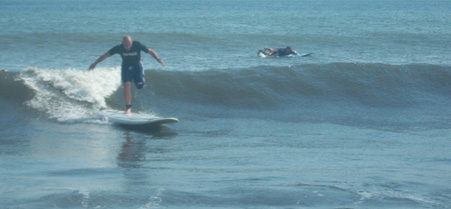Marine amputee trades bullets for bytes
 Marine Sgt. Ballard Hall has undergone 24 surgeries on his left leg.
Marine Sgt. Ballard Hall has undergone 24 surgeries on his left leg.
Since April 2007, Marine Sgt. Ballard Hall has undergone 24 surgeries on his left leg. The end result: an above-the-knee amputation in April 2010. How does he characterize this three-year ordeal? As an opportunity, despite sometimes feeling "like a medical guinea pig."
Trained as a machine gunner, Hall has spent the past year developing and refining his computer and information technology skills through internships at the National Reconnaissance Office and with Marine Corps Chief Information Officer Brig. Gen. Kevin Nally.
Hall came through a 2005 tour in Iraq unscathed, but after returning to Camp Lejeune, N.C., in February 2006, his left leg started to hurt, and by early 2007, he had limited mobility and was in excruciating pain. Doctors eventually diagnosed Hall with a rare condition known as popliteal artery entrapment syndrome , which often leads to amputation.
The popliteal artery supplies blood to the knee joint and muscles in the thigh and calf. The stresses of carrying heavy loads on repeated combat patrols caused Hall's artery to break down. Doctors at a civilian hospital in Wilmington, N.C., tried to resolve the problem with a series of artery bypass surgeries, but the pain persisted and in June 2009, doctors removed Hall's leg below the knee.
But circulation problems continued after Hall was fitted with a prosthetic leg. Told he might have a slightly better chance of walking and running with a prosthetic if he had an above-the-knee amputation, Hall chose what he refers to as the 10 percent solution and was fitted with a new prosthetic. He hasn't experienced any pain, other than phantom pain, since the last surgery in June 2010, he says.
Not that pain would be a deterrent for Hall, who largely took a pass on painkilling drugs through much of his ordeal as he did not want to become "zombified" like some of the other Marines and soldiers he encountered during the course of his treatment, he said.
Hall said he uses "mind over matter" to deal with the pain, backed up by his strong faith and the help of his wife, Mariah.
But machine gunners need two good legs, so last year Hall jumped at the opportunity of an internship with NRO, where, among other things, he picked up a Top Secret/Sensitive Compartmented Information clearance.
Hall served as a liaison between NRO and the Marine Warfighing Laboratory in Quantico, Va., on innovative techniques to combat improvised explosive devices, which cause a high number of Marine casualties in Afghanistan. Now in his internship for Nally, he is an Excel spreadsheet warrior, working on a variety of projects including cryptographic key management and cybersecurity.
Since he wasn't wounded in combat, Hall cannot stay in the Marine Corps, which frustrates him, but he has set his sights on eventually becoming an FBI agent.
Nally has high praise for Hall: "He understands quickly what needs to be done and does it [without] guidance. We love him."
Asked why he started a wounded warrior internship program, Nally said he wants to help provide direction to Marines like Hall who must chart a new course in life. "Life goes on and in their condition, sometimes they need focus. If I could change places, I would take their place. They are an inspiration to me."
NEXT STORY: Lawmakers Puzzled by New Defense Health Agency






